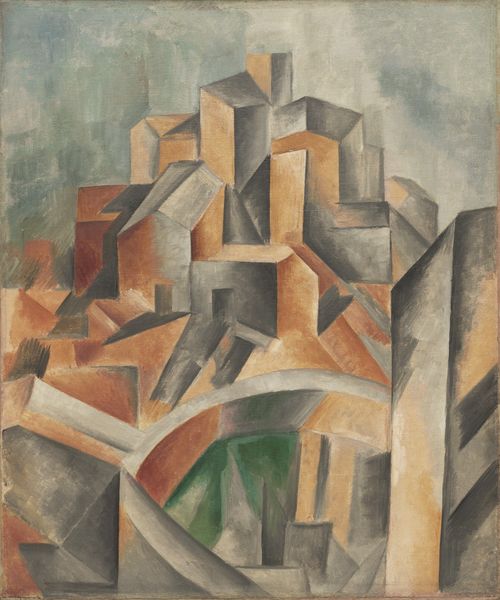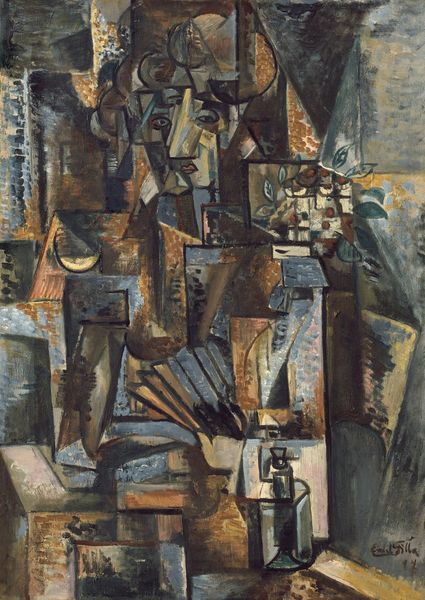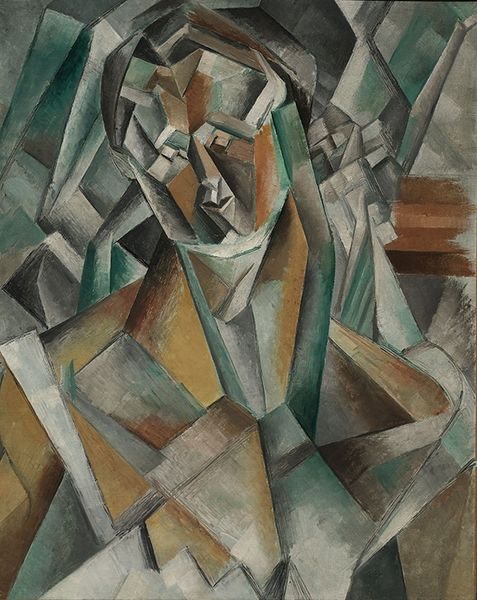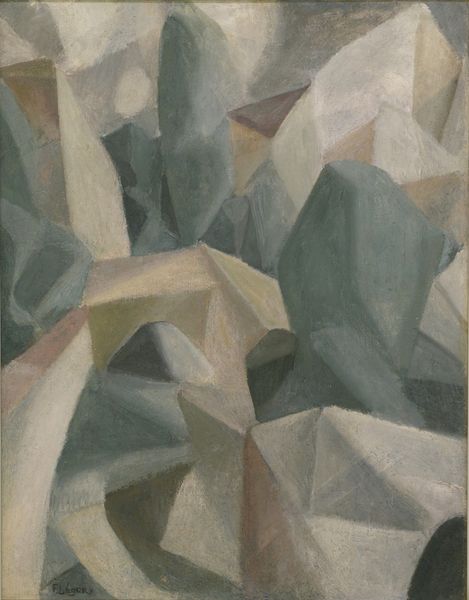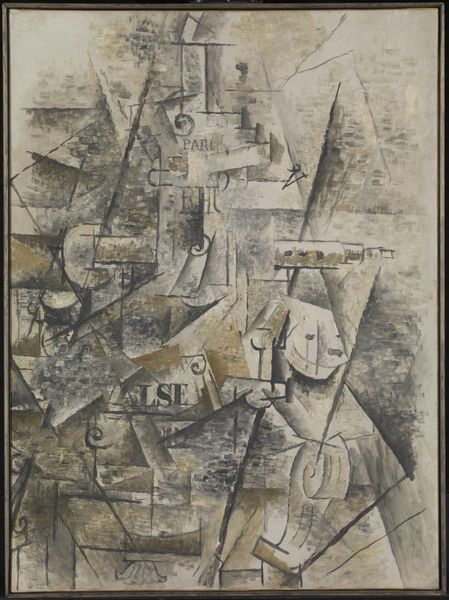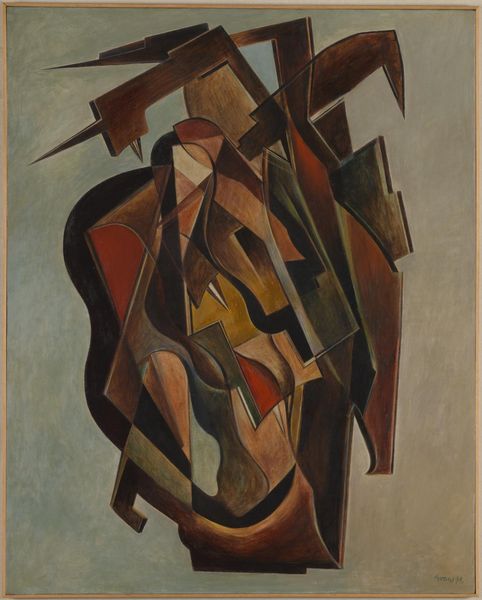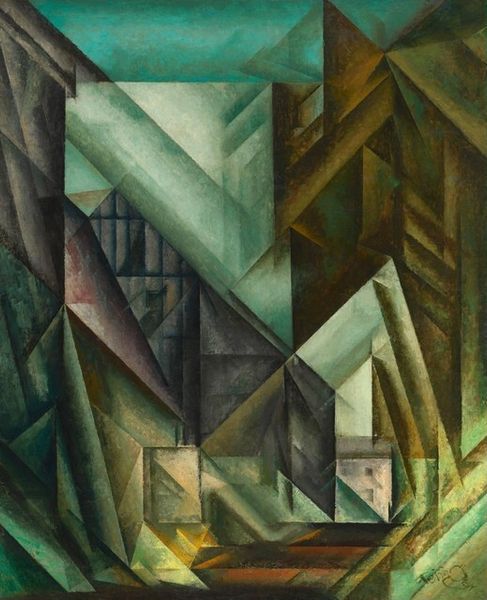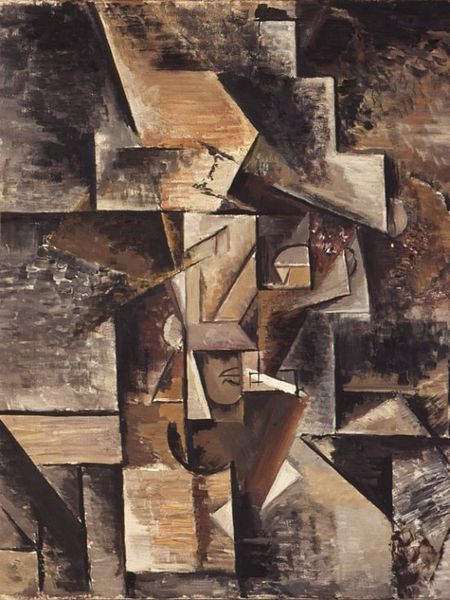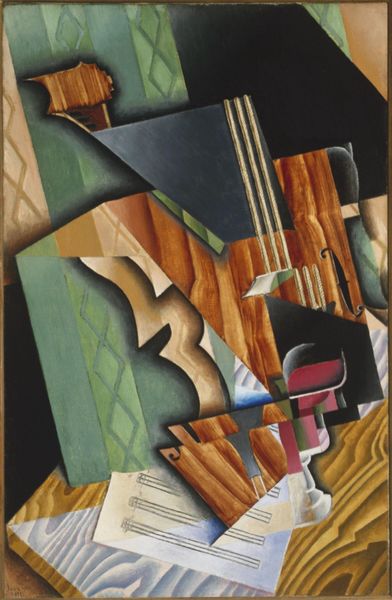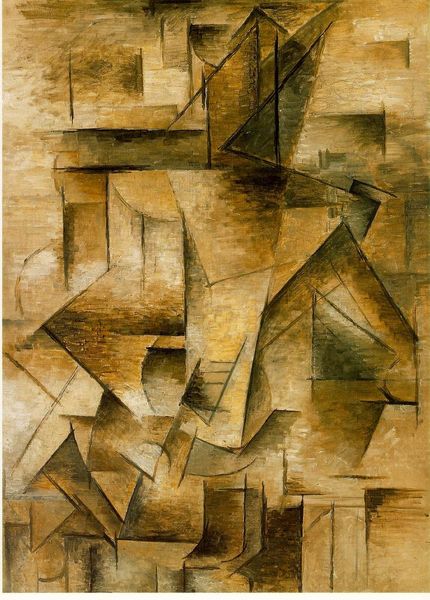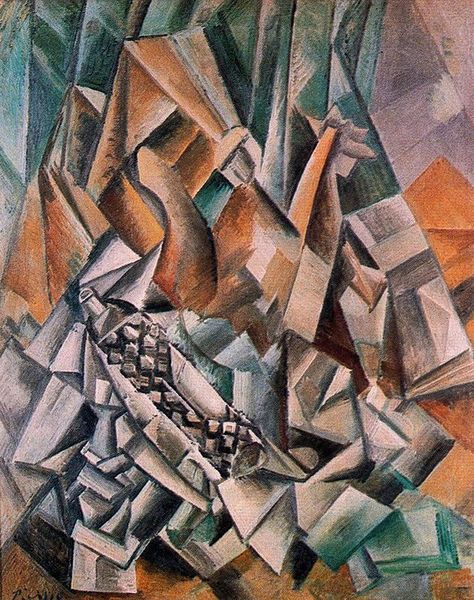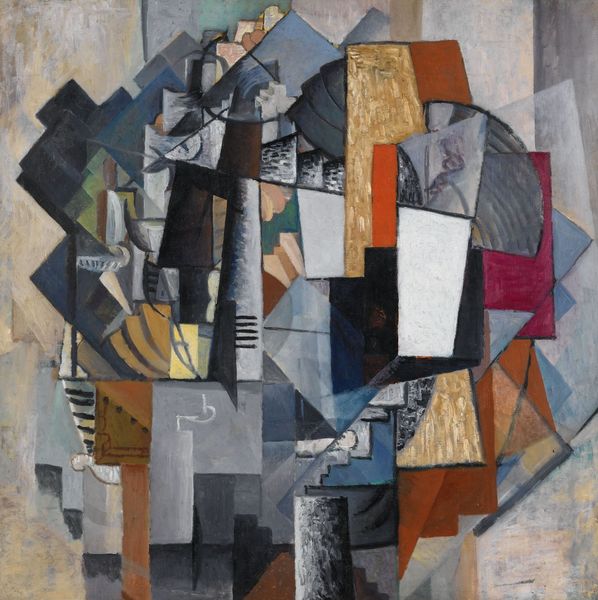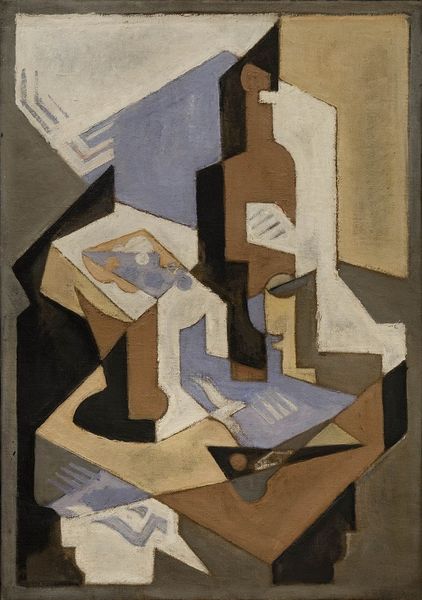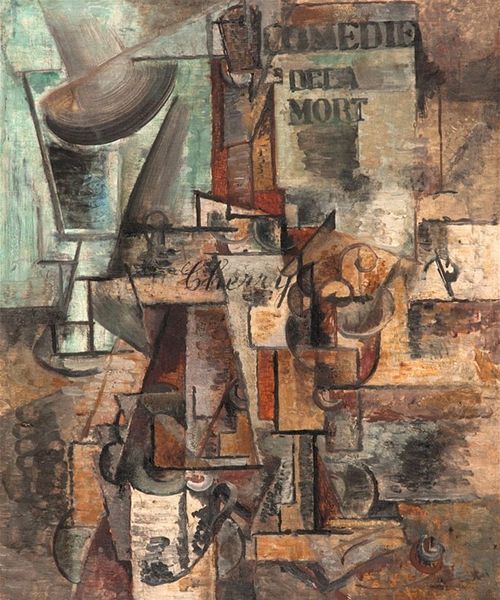
Dimensions: support: 711 x 559 mm frame: 926 x 802 x 75 mm
Copyright: © ADAGP, Paris and DACS, London 2014 | CC-BY-NC-ND 4.0 DEED, Photo: Tate
Editor: Here we have Georges Braque’s *Mandora*, held at the Tate Modern. It's a captivating jumble of muted tones. What do you make of the composition? Curator: The monochromatic palette and fragmented forms are crucial. Braque employs a restricted range of ochres and grays to emphasize the formal structure, the interplay of lines and planes. Notice how the instrument’s shape is both present and dissolving into the surrounding space. Editor: So, it's less about representing a mandora and more about exploring form itself? Curator: Precisely. The subject is merely a pretext for an investigation of pictorial space and the nature of representation. The overlapping planes create an ambiguous depth, challenging traditional perspective. Editor: It's fascinating how Braque deconstructs and reconstructs the instrument. It really challenges my expectations of what a painting should be! Curator: Indeed. This work exemplifies the formalist approach, prioritizing the internal logic and structure of the artwork above all else.
Comments
Join the conversation
Join millions of artists and users on Artera today and experience the ultimate creative platform.
tatemodern 9 months ago
⋮
Braque’s interest in collecting musical instruments is captured in this painting. Here he depicts a small stringed instrument called a madora. The painting is made up of different geometric shapes, making it appear fragmented. This style suggests a sense of rhythm, matching the musical subject of the painting. Braque explained that he liked to include instruments in his cubist works. ‘In the first place because I was surrounded by them, and secondly because their plasticity, their volumes, related to my particular concept of still life’. Gallery label, August 2020
